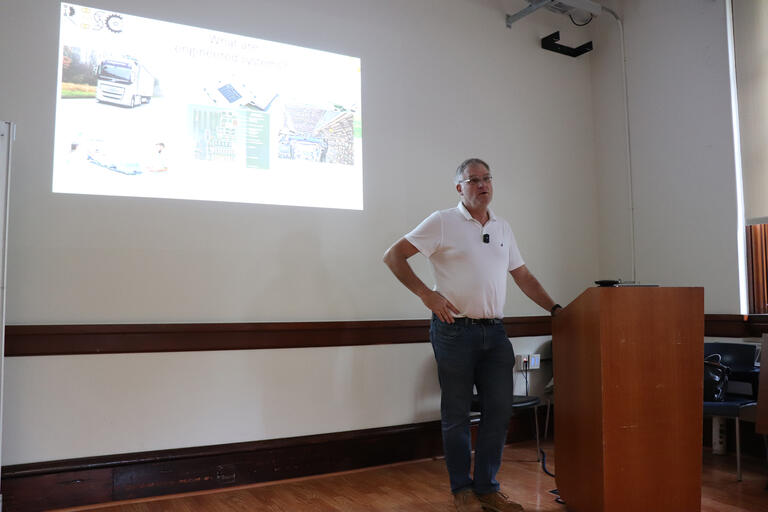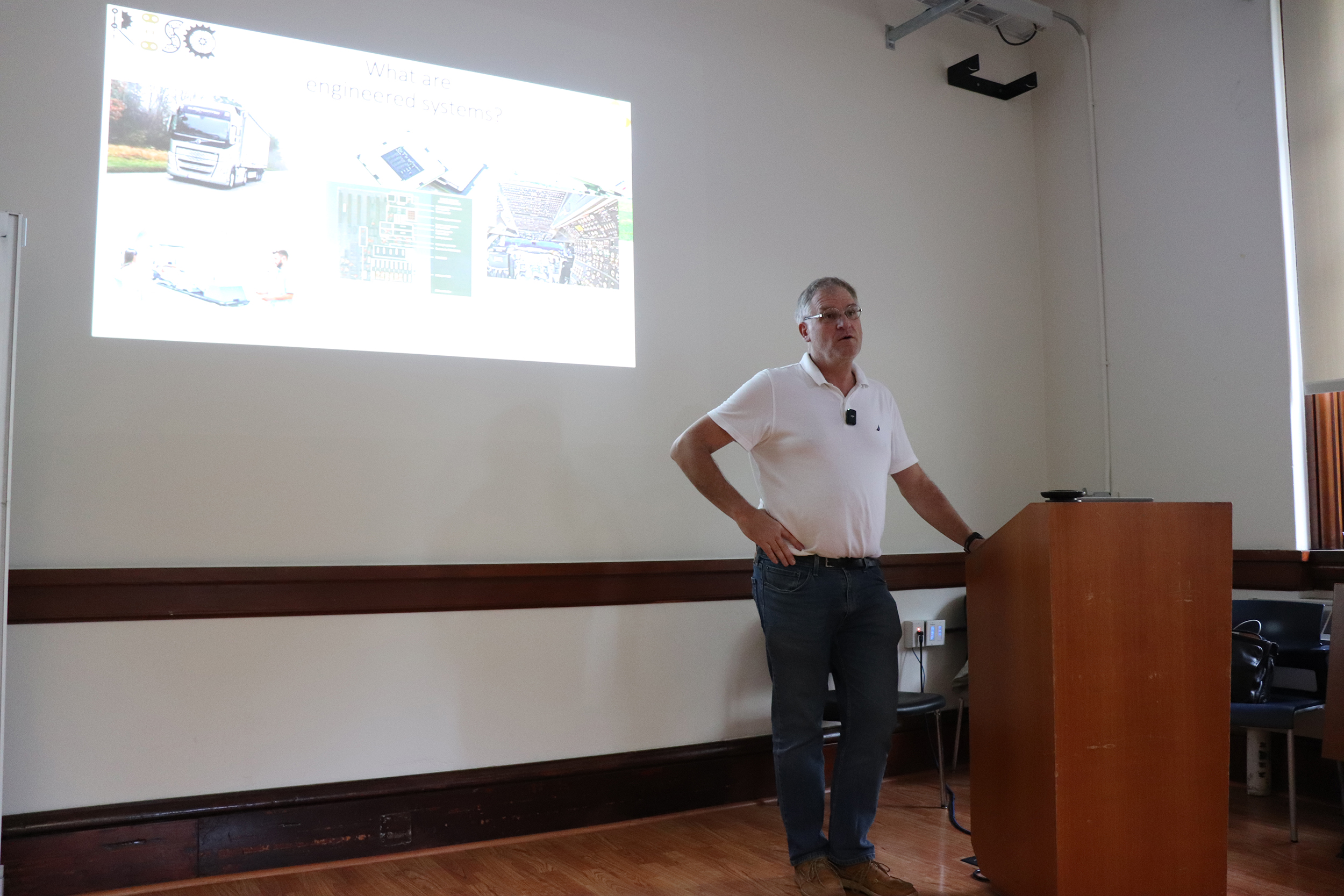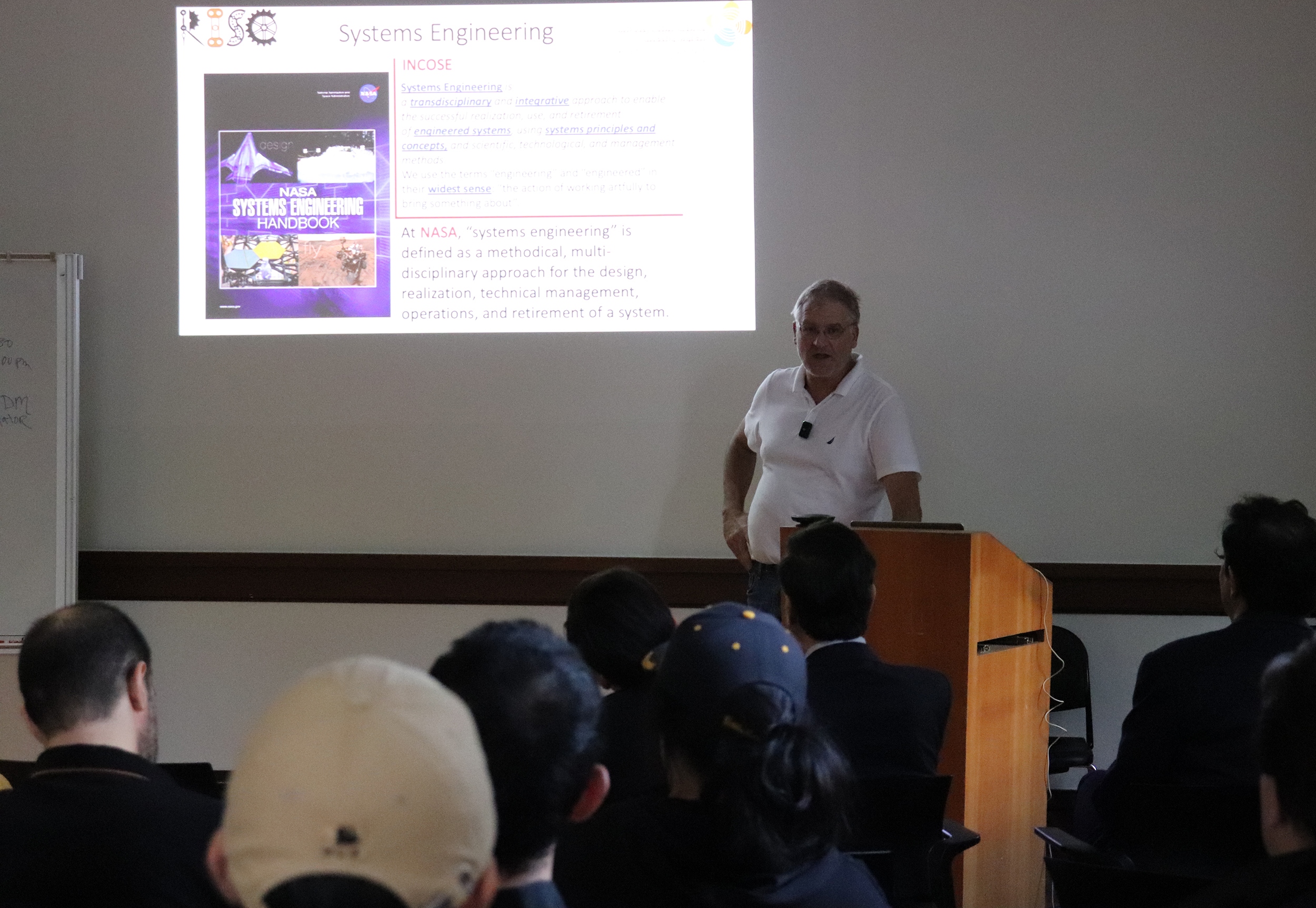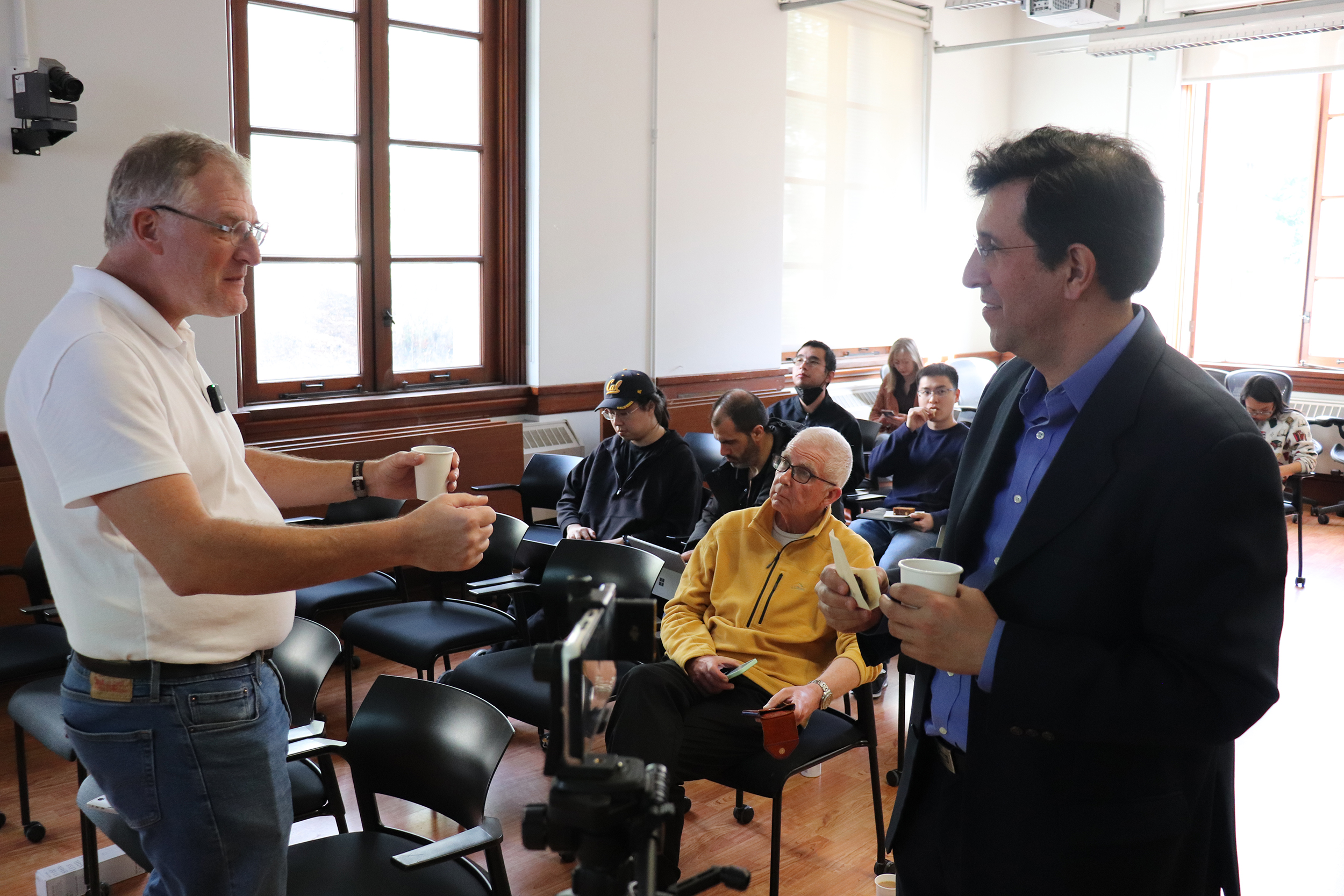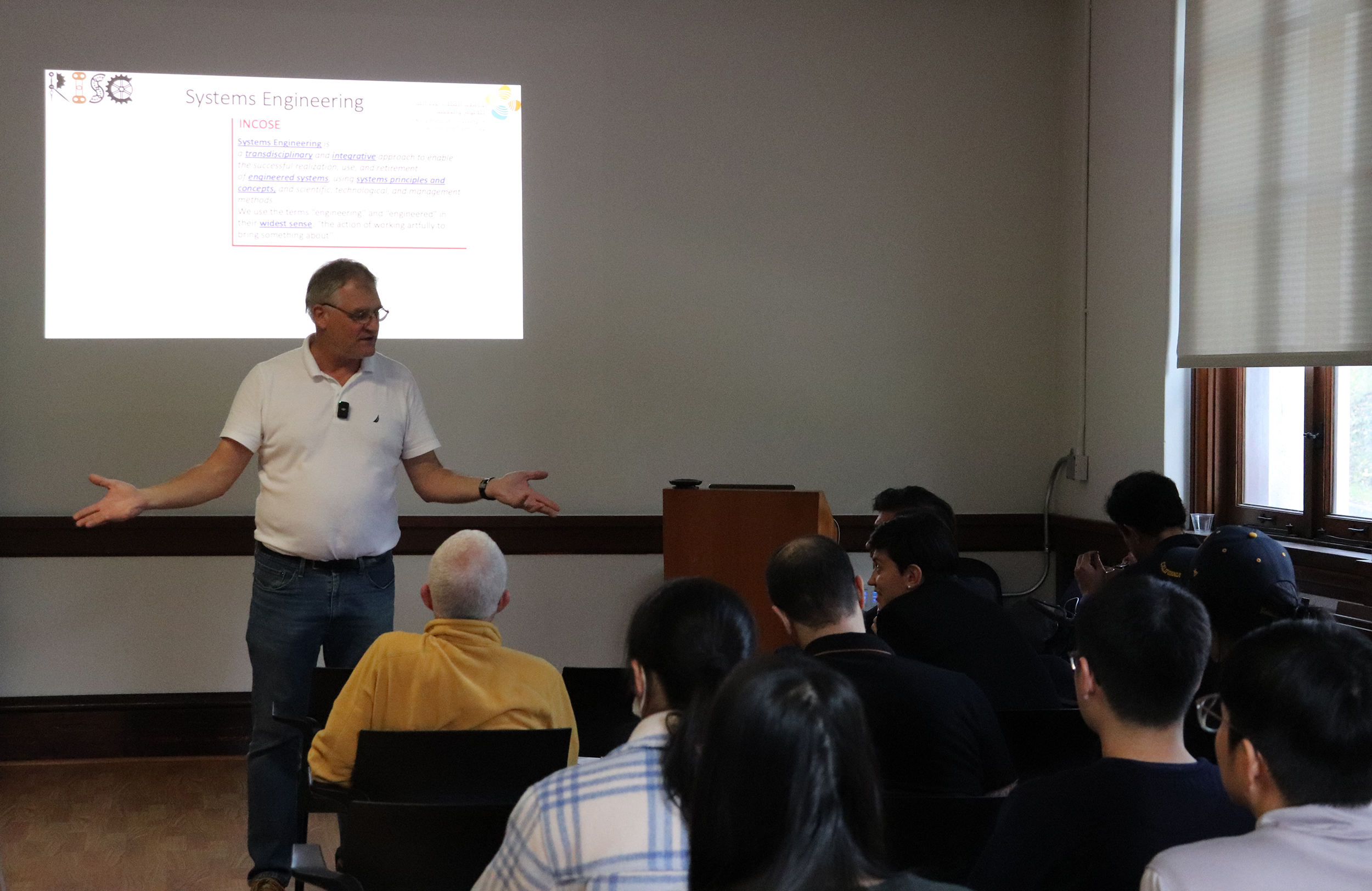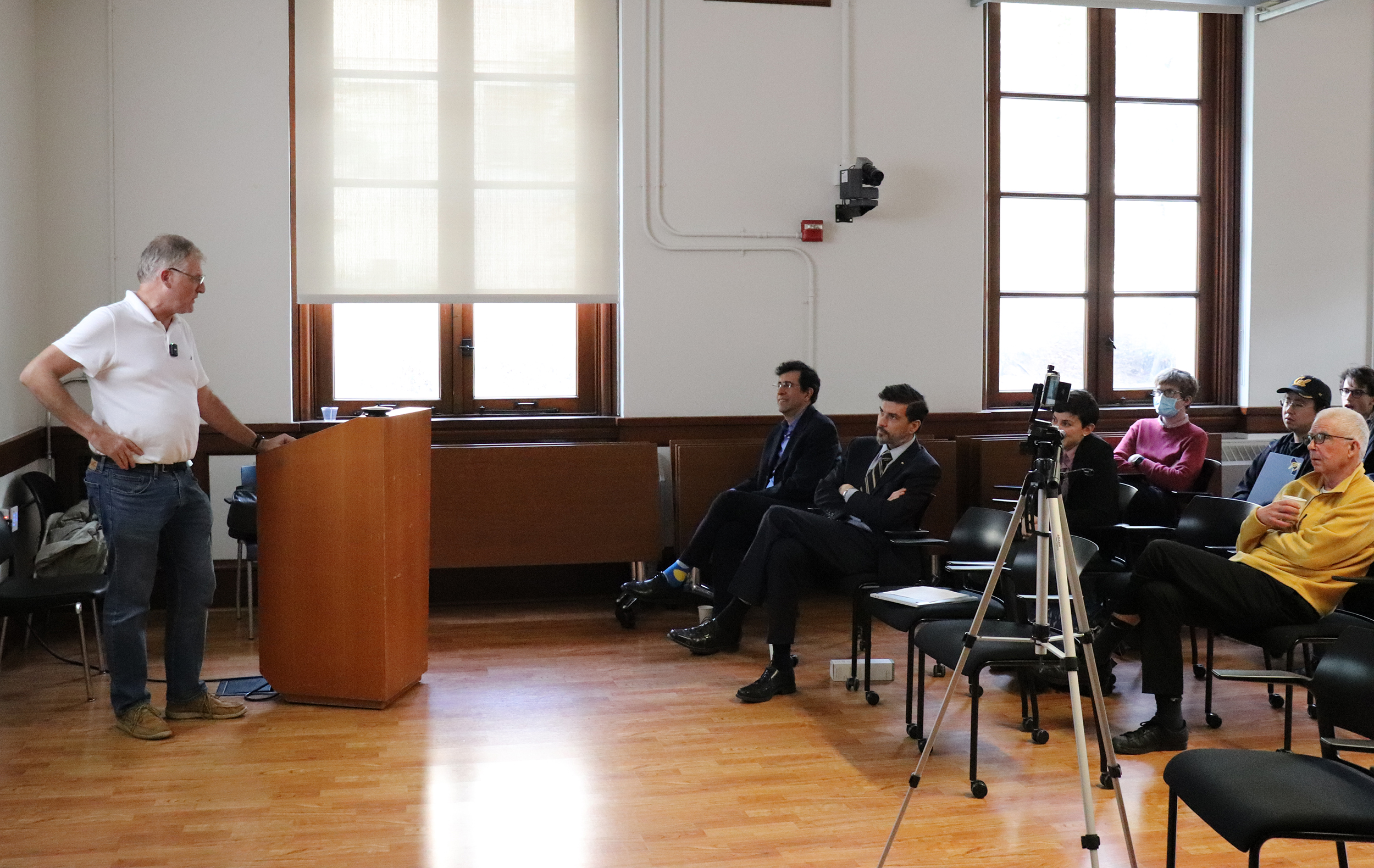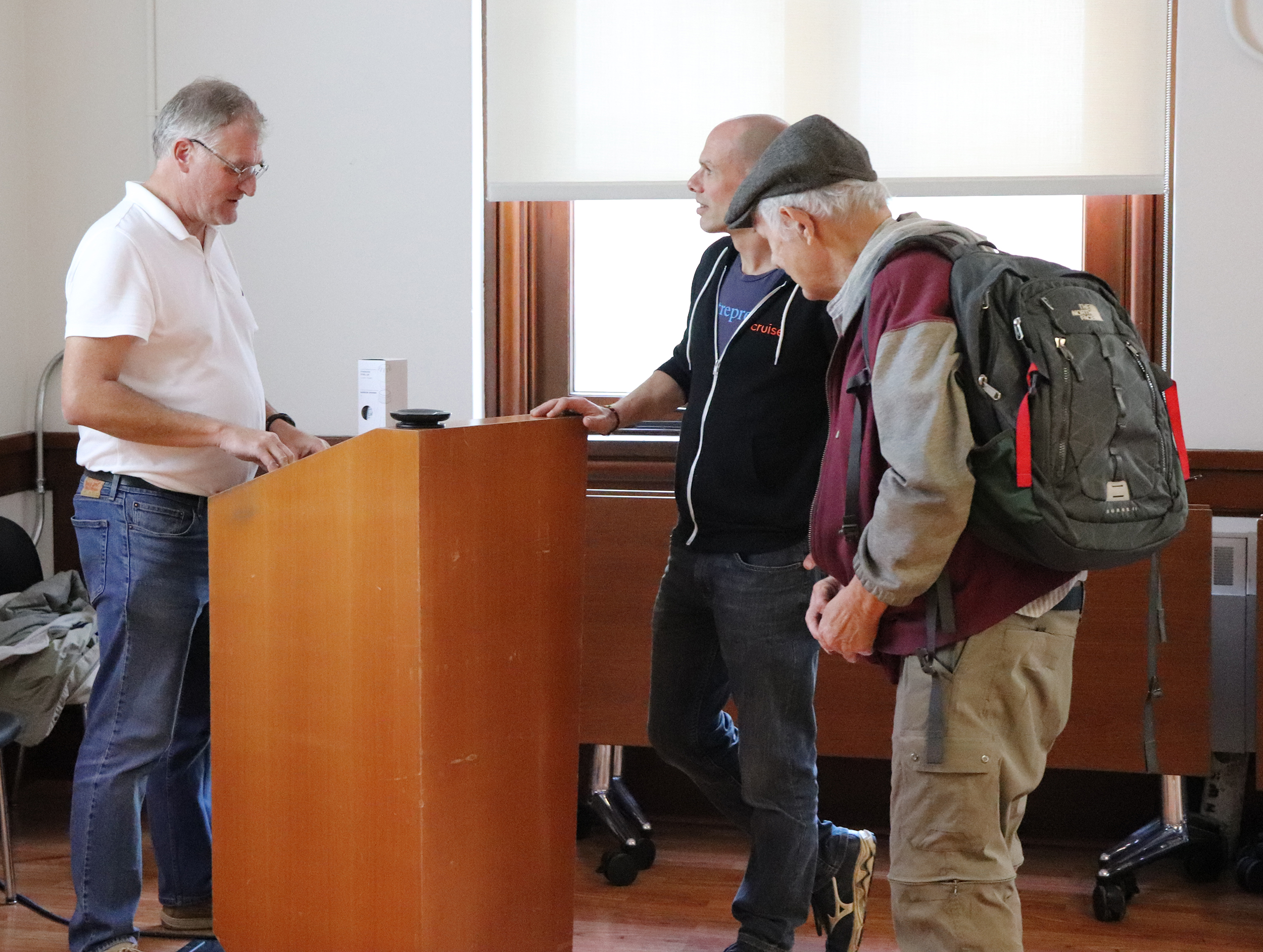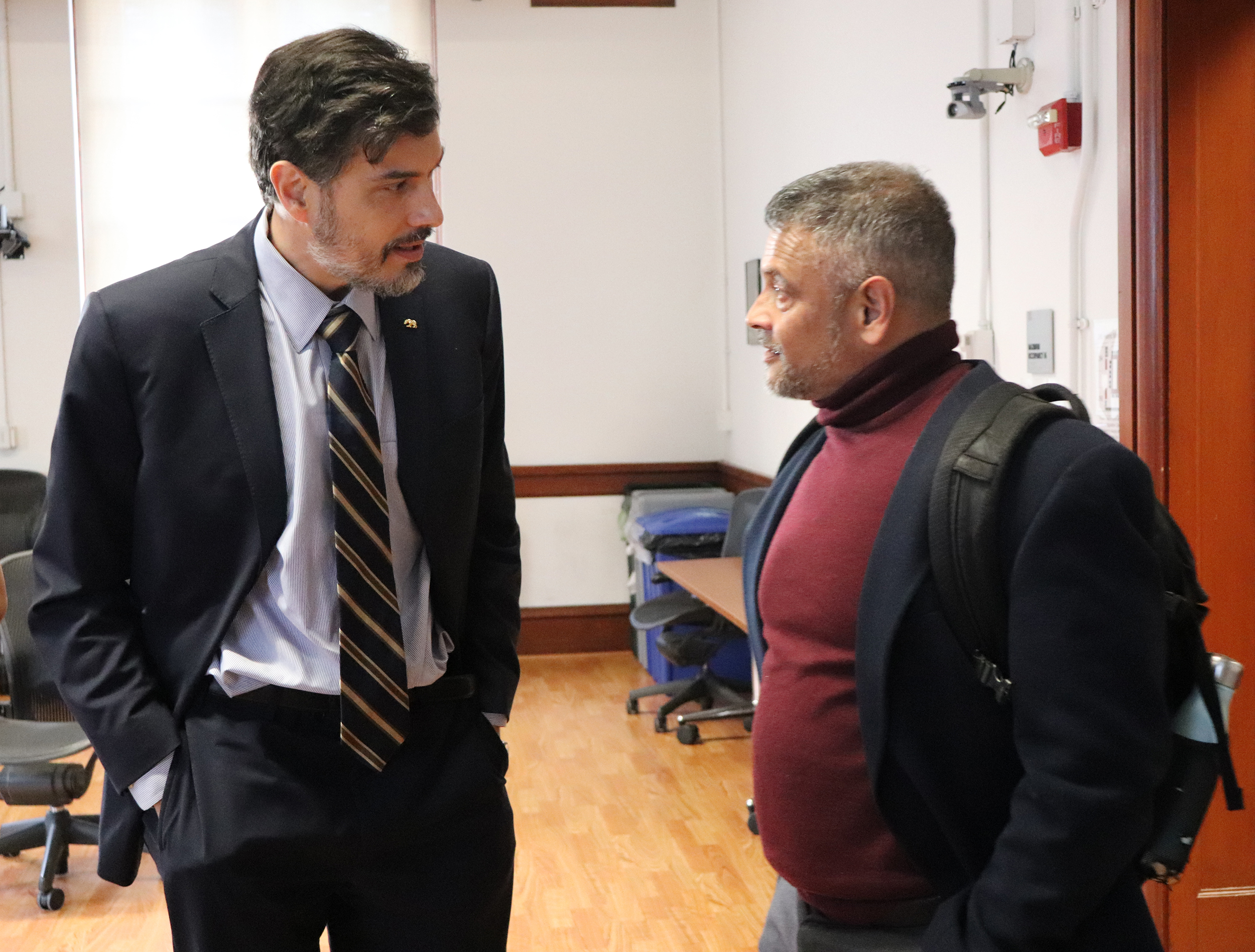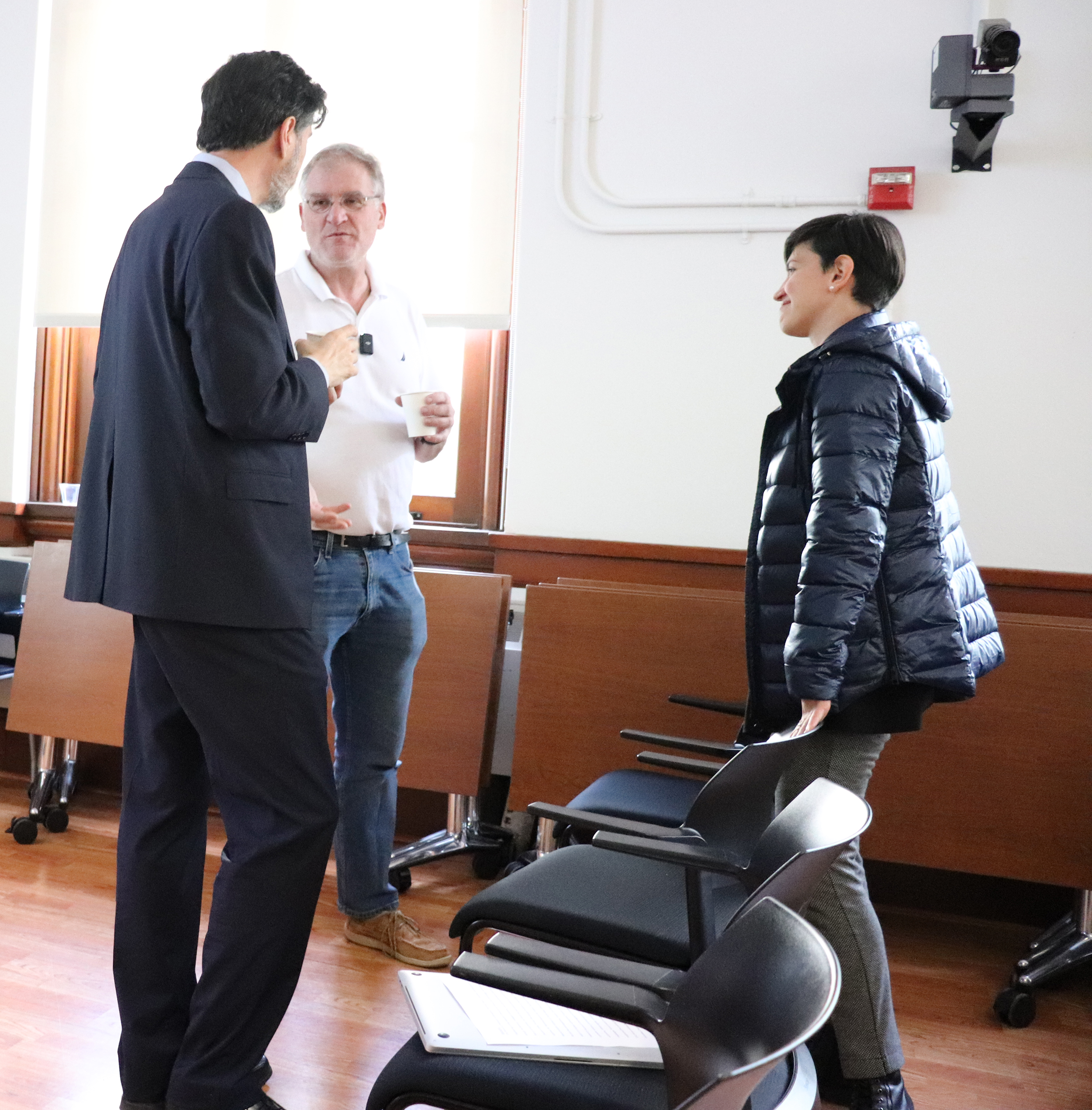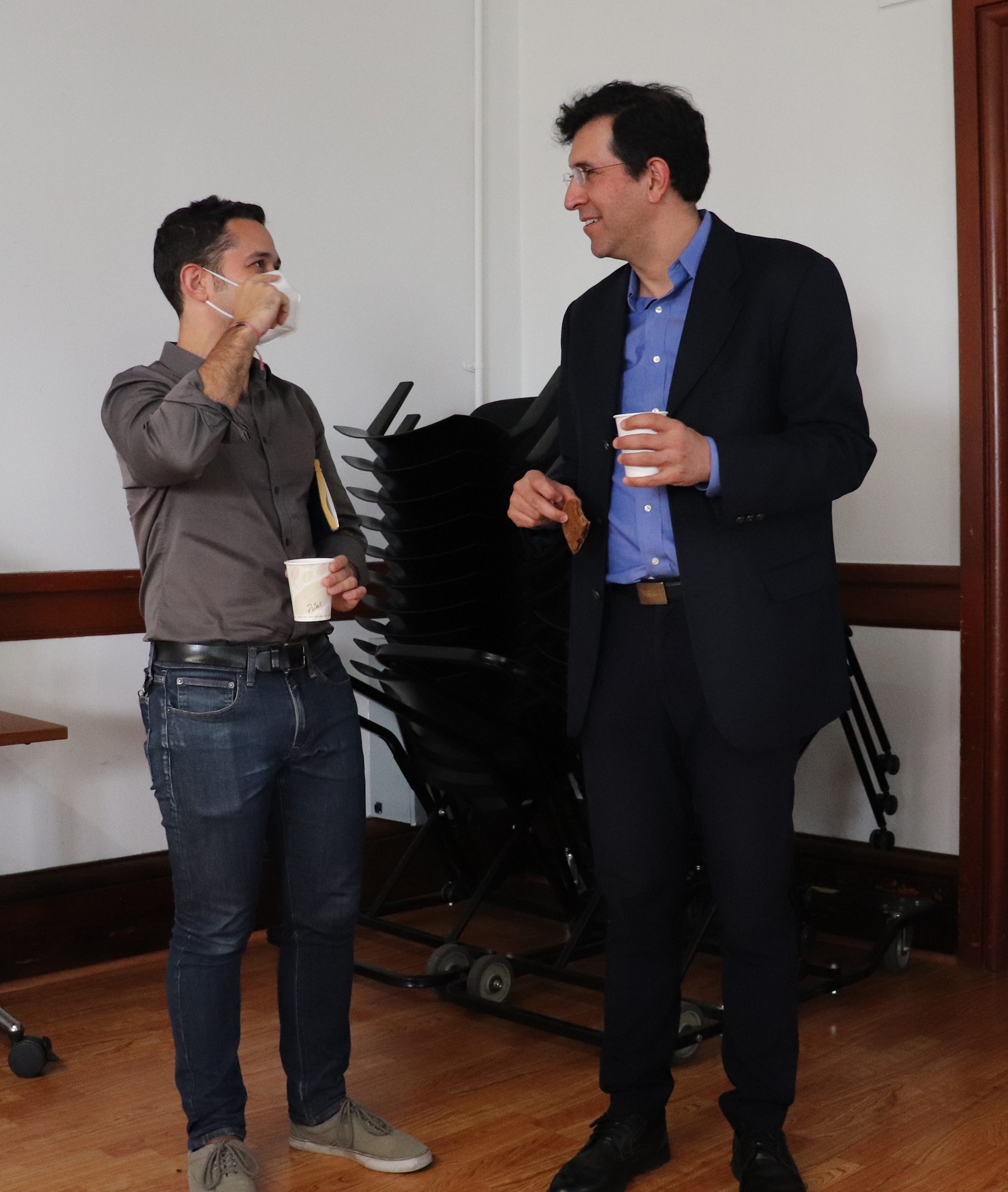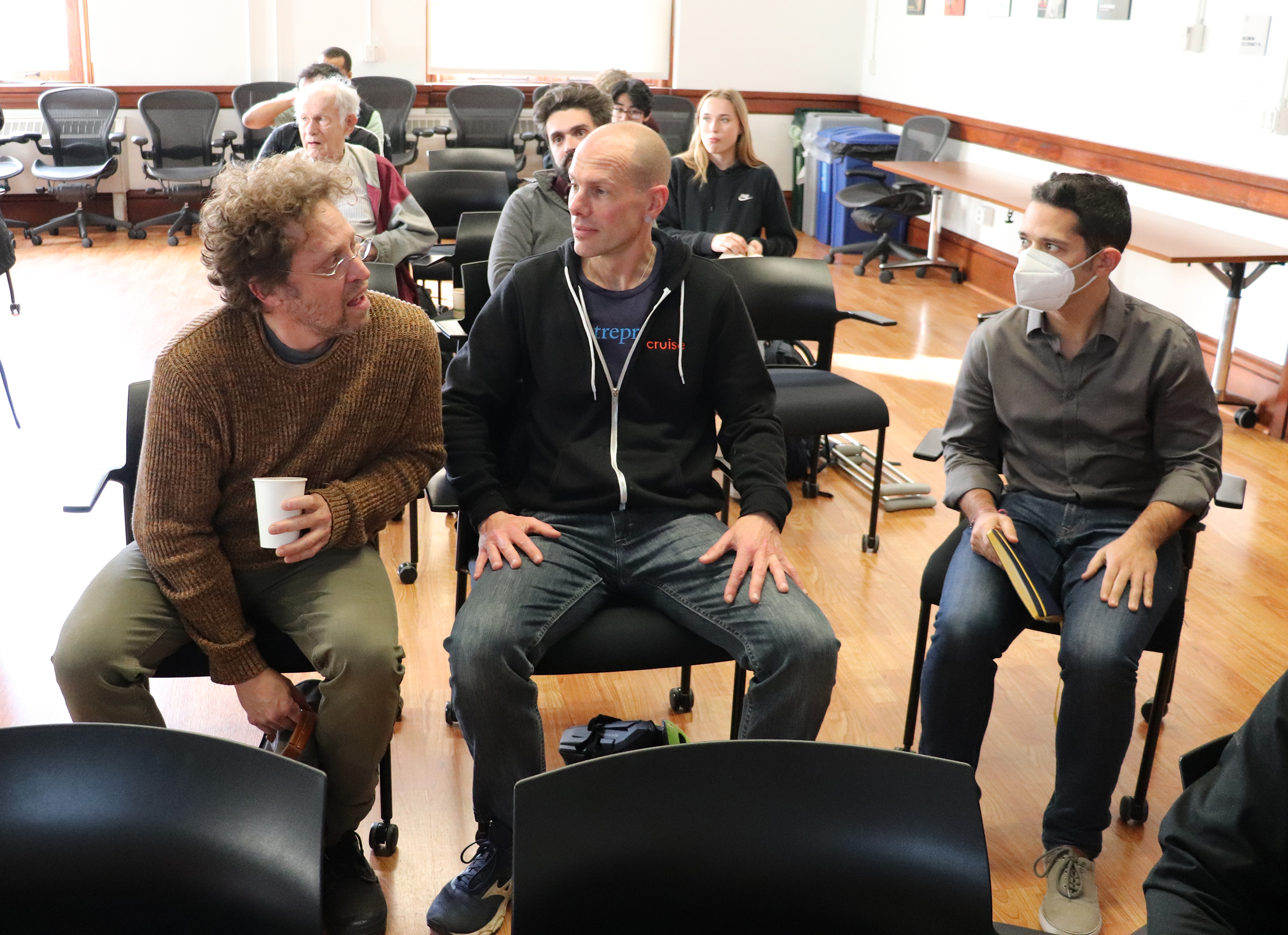Eric Feron, Professor of Biological, Electrical, Computer and Mechanical Engineering, Robotics, Intelligent Systems, and Control Laboratory (RISClab), King Abdullah University of Science and Technology, presented Complex systems engineering theory is a scientific theory at the ITS Berkeley Transportation Seminar on January 27, 2023.
Abstract: Complex systems engineering and associated challenges are becoming increasingly important for the well-being and safety of human society. Motivated by this formidable push towards ever more complex systems of all sizes, spectacular failures, and decades of questioning in a variety of contexts and endeavors, this talk presents a theory of complex systems engineering that is, as a scientific theory in which an engineered system can be seen as a validated scientific hypothesis arising from a convergent mix of mathematical and validated experimental constructs. In its simplest form, it is a manufactured, validated scientific hypothesis arising from a mathematical theorem similar to those found in theoretical physics. The talk begins with the scientific hypothesis underlying this theory, and arguments in favor of it are displayed, as well as some of its practical consequences in terms of complex system design and future research. Then, a limited set of experiments is presented to try to invalidate the theory by confronting it with existing educational programs in systems engineering in the United States of America. Concurrent with these invalidation efforts, this talk also argues that there is a serious and growing lack of education in mathematics and/or engineering science in most, if not all, systems engineering programs. Such weaknesses challenge the industrial value of all corporate or government institutions in the pursuit of complex engineered systems excellence.
Biography: Eric Feron is a Professor of Biological, Electrical (main), Computer, and Mechanical Engineering at King Abdullah University of Science and Technology, where he co-directs the Robotics, Intelligent Systems, and Control laboratory (RISClab). Prior to that or concurrently, Eric Feron has had appointments with Ecole Nationale de l’Aviation Civile, France; the Georgia Institute of Technology, USA; the Institut Supérieur de l’Aéronautique et de l’Espace, Sup’Aéro campus, France; the Massachusetts Institute of Technology, USA; and the Office National d’Etudes et Recherches Aérospatiales, France. Eric Feron trained as a naval officer of the watch on nuclear submarines (France), and as a private pilot (USA). Feron’s research focuses on leveraging his knowledge and contributions to control theory, computer science, and optimization to address problems having to do with autonomy, robotic agility, transportation, and other complex systems-level challenges. Feron’s work includes analytical and experimental activities and it has supported the training of dozens of doctoral, master and undergraduate students. Eric Feron relaxes by operating sailboats of all sizes with his wife Christine-Marie, including Casa del Mar, their off-shore bluewater cruiser.

